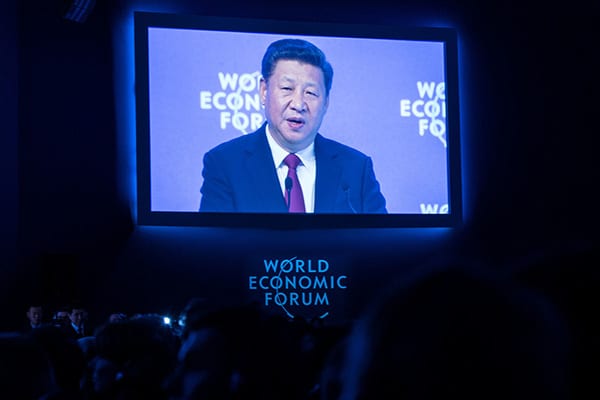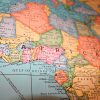
At the forthcoming Communist Party of China (CPC) congress this autumn, the current General Secretary and President of the country may succeed in amassing more power than any of his predecessors, apart from Mao, and even break the unwritten rule, introduced in the wake of the Great Helmsman, of not occupying the post for more than two terms. The party has already designated Xi Jinping as the ‘core leader’, which suggests that he is much more than a primus inter pares on the seven-member Politburo Standing Committee. His accumulation of power is not only possible; it is also necessary if he is to carry out a series of reforms –including the fight against a corruption that has become systemic, as well as economic reforms–.
Along the same lines, Michael Pettis, Professor of Finance at the School of Management at Peking University, said in a recent interview in the Elcano Journal that ‘unless power is concentrated even more, Beijing cannot force the necessary transfers of wealth from “vested interests” to ordinary households’. ‘Vested interests’ refers to the individuals, families and groups benefitting from the system with corrupt practices –aggravated by the economic growth of recent decades– that involve collusion between the bureaucracy and businesses, and –within the former– also obstruct the required economic reform.
Although it comes at a price for him in terms of political structures, Xi Jinping knows, and moreover says, that the fight against corruption is one of the issues where the majority of Chinese are adamant, and even though China may not be a democracy, public opinion nonetheless exists and counts, despite the fact it often lacks the outlets for expression that are customary in liberal systems. That said, corruption trials fell for the first time last year.
This redistribution of power requires an iron hand, not liberalisation in political terms. Pettis adds that ‘if he pulls it off, China is capable of achieving average growth of 3% over coming decades, with an improvement for households. If not, China’s growth will be much lower, and could even collapse’. In light of the ageing of the population in the decade ahead, and in order to ensure welfare and full employment, as a Natixis analysis rightly points out, the Chinese economy will no longer need to grow at rates in excess of 6% per annum: 3% will suffice. This also helps to explain its current emphasis on automation and robotisation.
But economics and politics go hand in hand. As Martin Wolf and others point out, Xi Jinping, convinced that only the communist system can ensure China’s stability and prosperity, seeks to push both more Leninism and more markets, insofar as in the last analysis these are compatible.
In order to really drive economic and technological innovation further than is already happening, which while not insignificant is inadequate, the system needs to be liberalised in terms of the circulation of information. Recently in Beijing and elsewhere, young researchers (in the social sciences in this case) complained of not having normal access to the Internet in order, for example, to freely consult research papers from the West, especially the US. The Great Chinese Firewall –in which thousands of people work– prevents it. This is a contradiction intrinsic to the Chinese system, which, as an article published in China Daily pointed out, if it misses the window of opportunity presented by the ‘period of reform’ could enter into a ‘period of torture’, even for Xi Jinping. Deng Xiaoping, the great architect of modern China, wanted to ‘open the windows to let fresh air in’. What Xi may be asking is how much to open them.
Although Shanghai regularly features in the highest positions in the PISA education tests, the Chinese authorities are trying to devise an education system that stimulates the creativity and innovation of its students, something not always achieved by a system that is highly demanding and focused on rote learning. It remains to be seen whether it is achievable without greater liberalisation of information, and whether this will lead to greater calls for political liberalisation (rather than democratisation).
The dilemma becomes a trilemma in the face of the other challenge that Xi Jinping may have to address: the international arena. Although Beijing can regain regional and even global credibility after the torpedoing of the Transpacific Trade Partnership (TTP), Donald Trump’s arrival in the White House, with his anti-China and pro-Taiwan stance, his threats of tariffs and a possible use of force in what are known as the China Seas, may put Xi Jinping in an awkward predicament and oblige him to strengthen his simultaneously nationalist and globalist stance (the latter aspect being something he exhibited at the World Economic Forum in Davos, albeit not a liberal variety of globalism). There is a danger of trade and currency wars, and rather more than military tensions.
It is not at any rate a case of returning to 1820, when China was the largest economy in the world but its interests were regional. Now it is returning to the front economic rank, this time with global interests. It creates institutions for a parallel global order, although these represent only 50% of its commitments, because it is also part of the so-called ‘liberal global order’. This external dimension will also be reflected in the internal power struggle that the system is undergoing. As far as George Soros is concerned, if Xi’s economic reforms have not worked in a couple of years, the system will turn into a state that is ‘repressive at home and aggressive abroad’. There can be little doubt that Trump will influence, indirectly, what happens in China. And vice versa.


